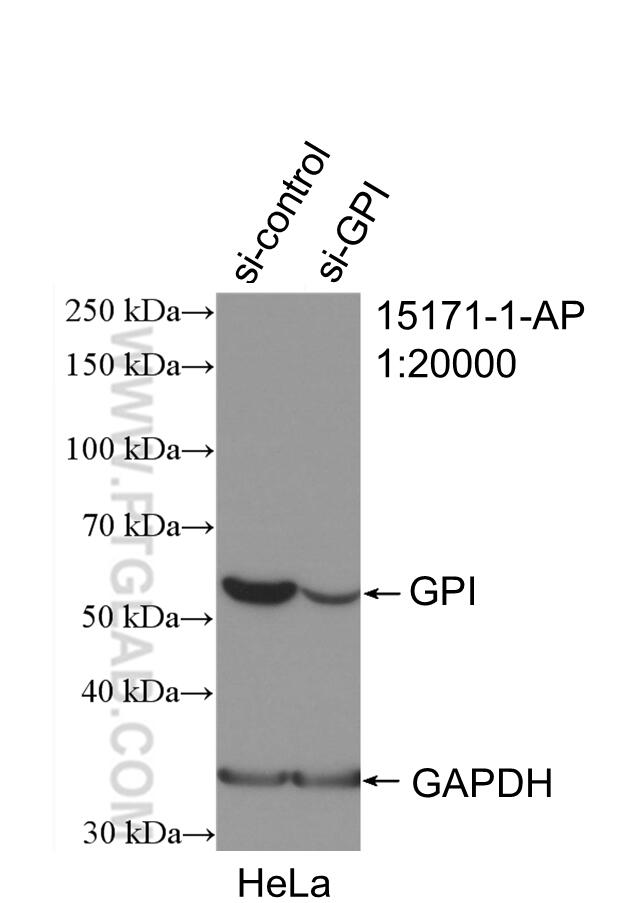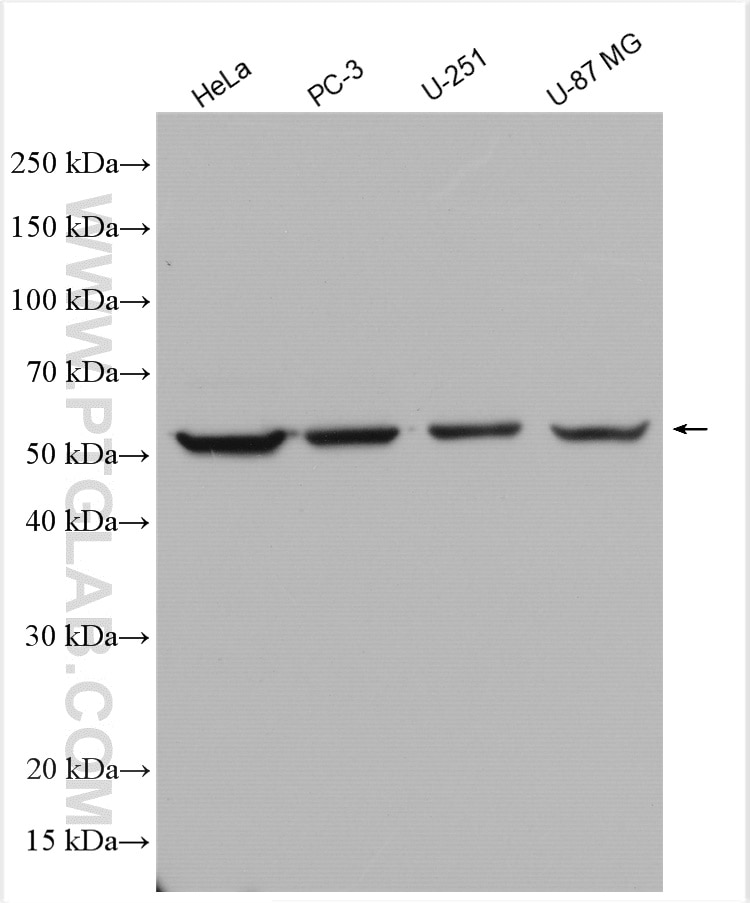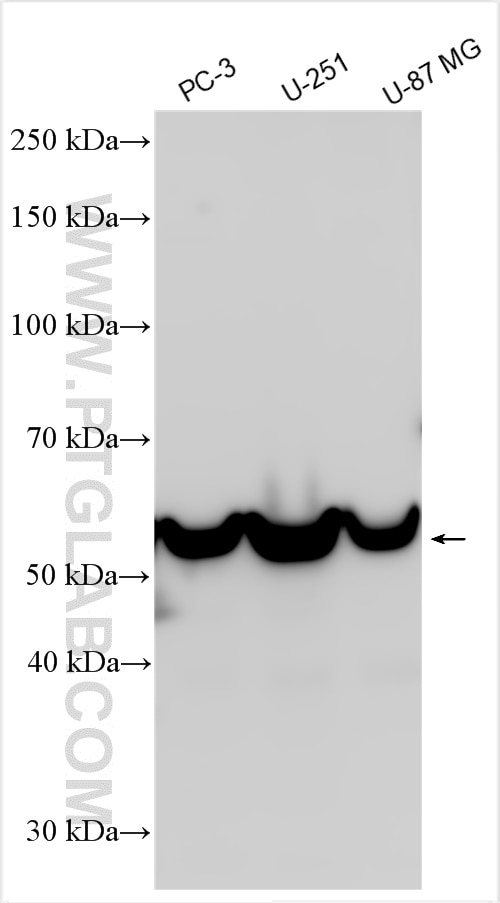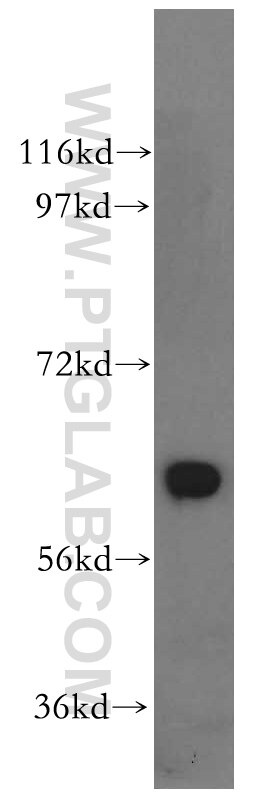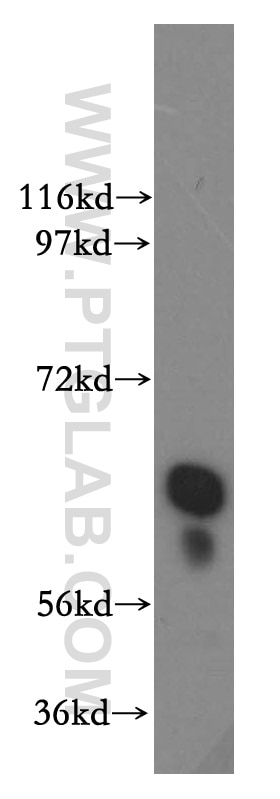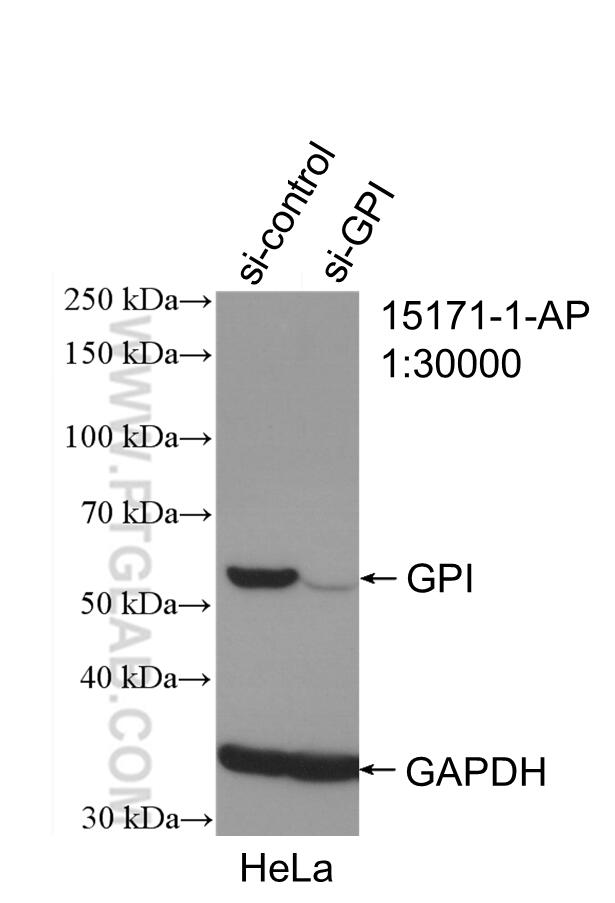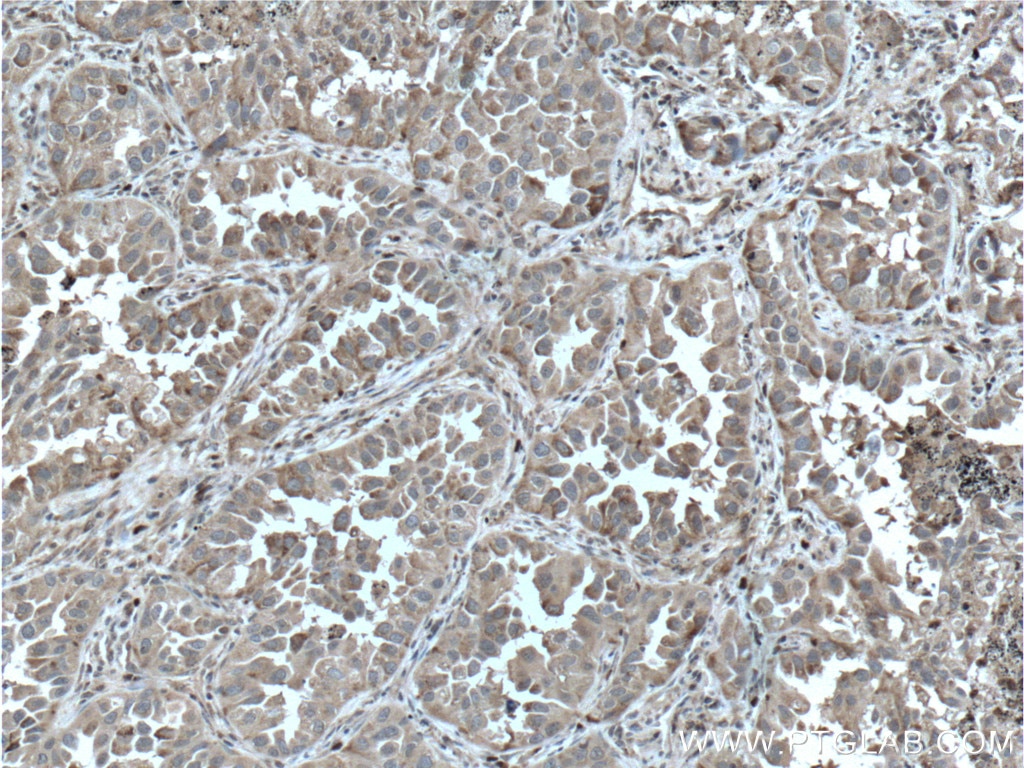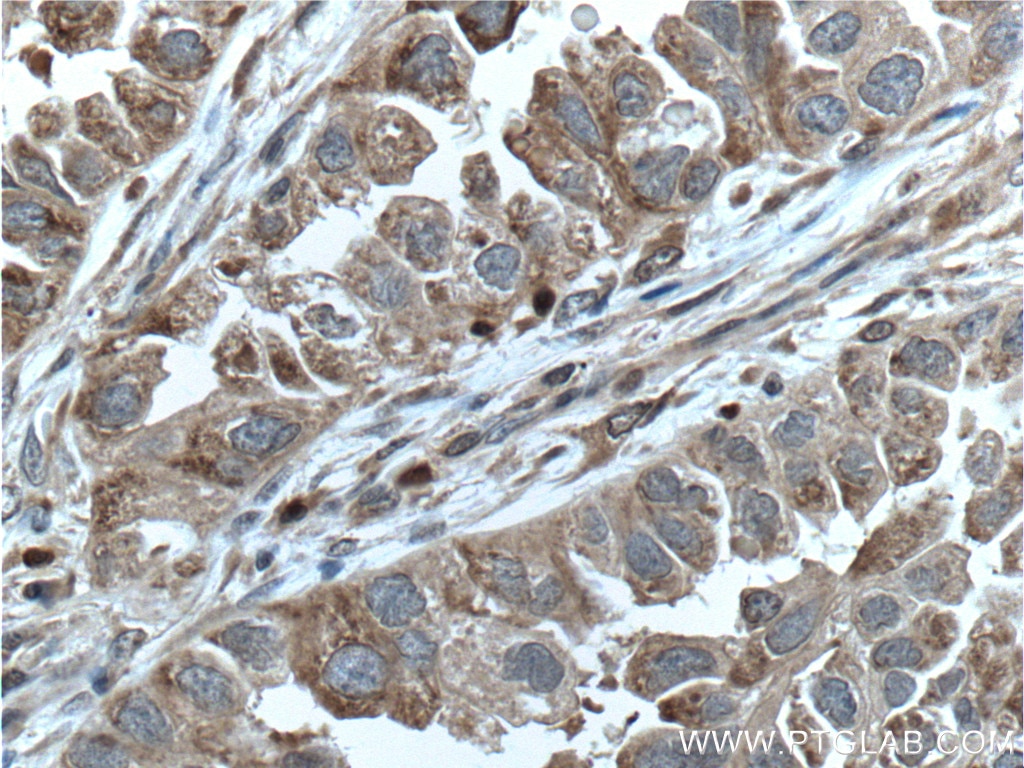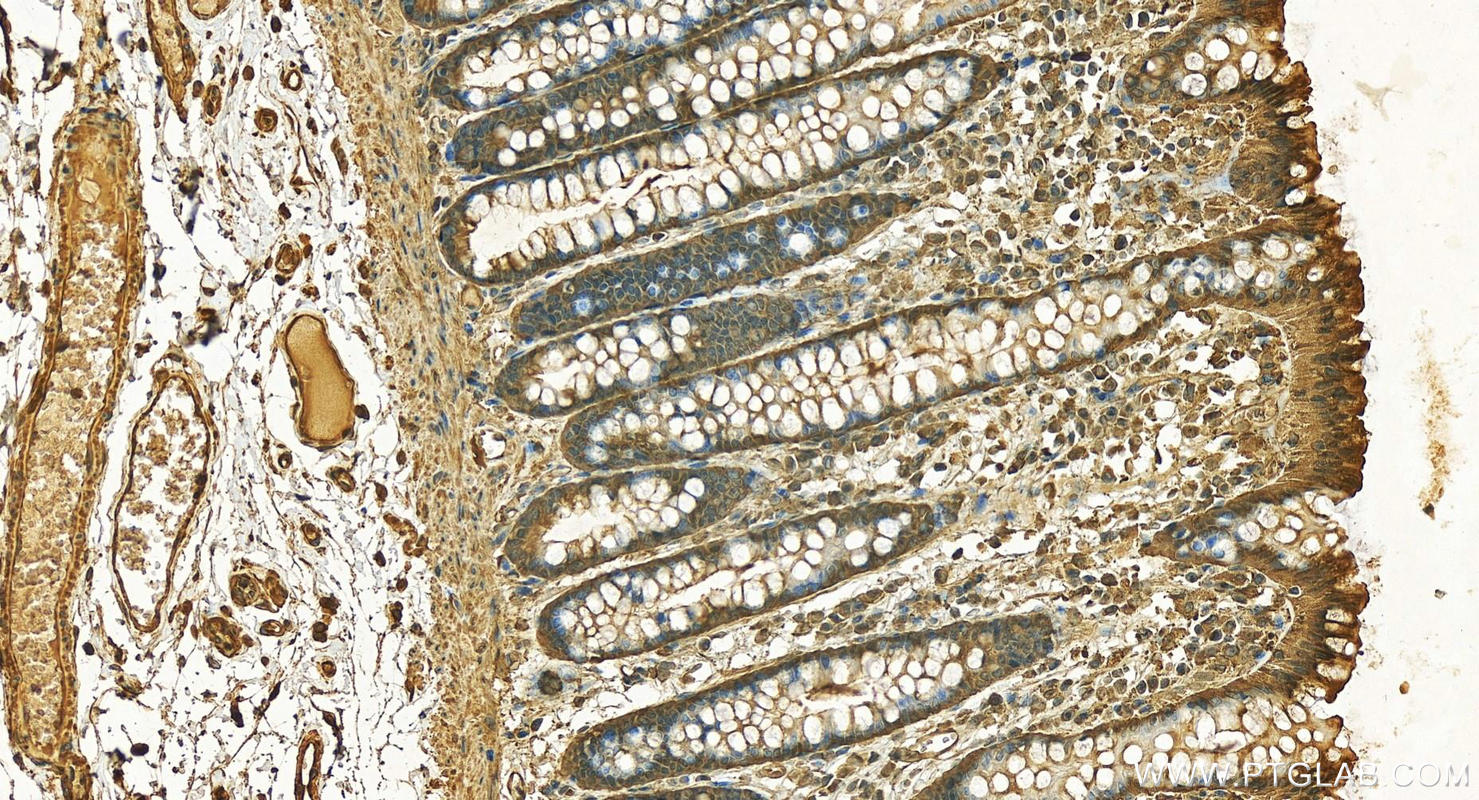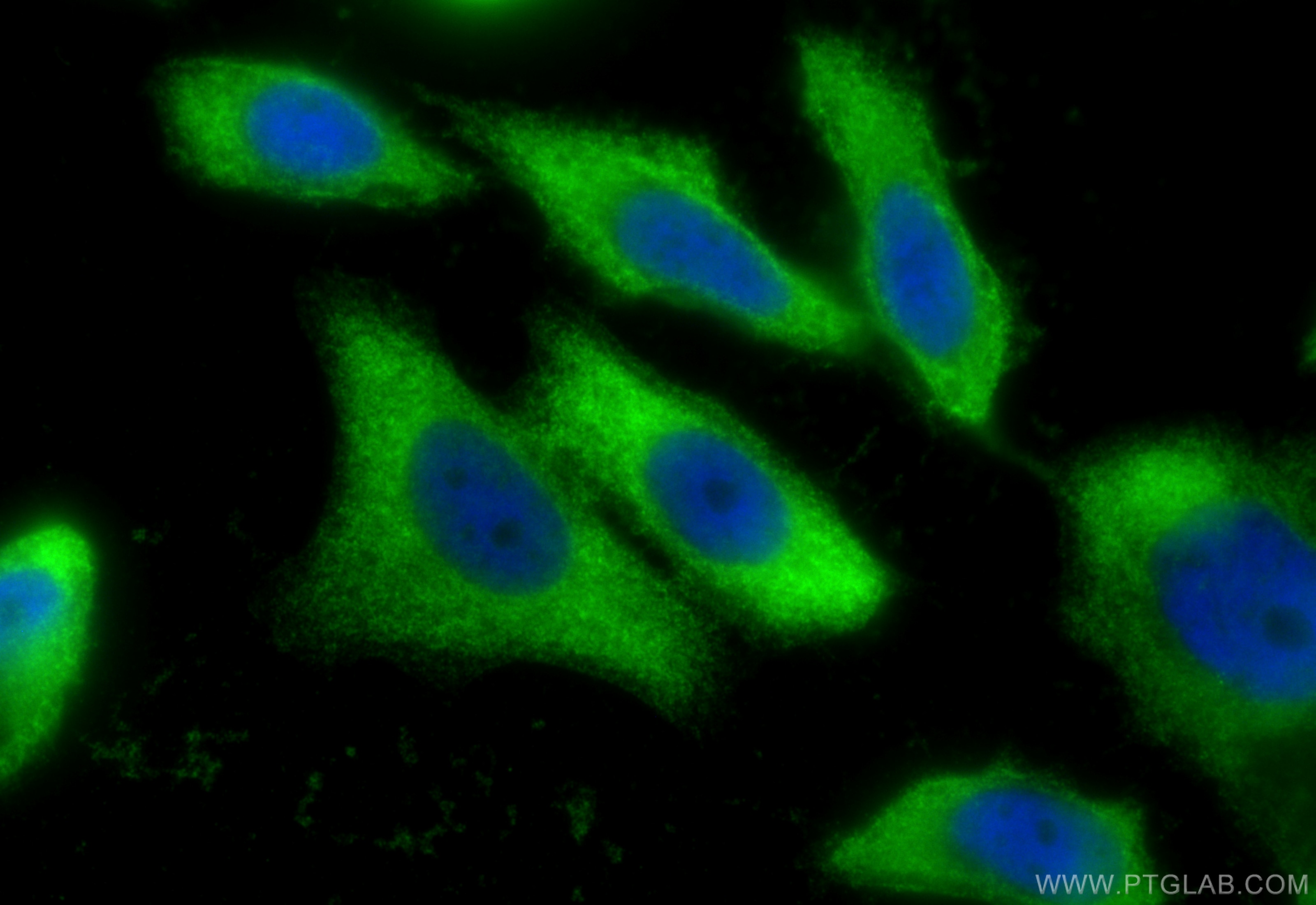Validation Data Gallery
Tested Applications
| Positive WB detected in | HeLa cells, PC-3 cells, PC3 cells, U251 cells, U87-MG cells |
| Positive IHC detected in | human lung cancer tissue, human normal colon Note: suggested antigen retrieval with TE buffer pH 9.0; (*) Alternatively, antigen retrieval may be performed with citrate buffer pH 6.0 |
| Positive IF/ICC detected in | PC-3 cells |
Recommended dilution
| Application | Dilution |
|---|---|
| Western Blot (WB) | WB : 1:500-1:2000 |
| Immunohistochemistry (IHC) | IHC : 1:100-1:400 |
| Immunofluorescence (IF)/ICC | IF/ICC : 1:50-1:500 |
| It is recommended that this reagent should be titrated in each testing system to obtain optimal results. | |
| Sample-dependent, Check data in validation data gallery. | |
Published Applications
| WB | See 29 publications below |
| IHC | See 1 publications below |
| IF | See 2 publications below |
Product Information
15171-1-AP targets GPI in WB, IHC, IF/ICC, ELISA applications and shows reactivity with human, mouse, rat samples.
| Tested Reactivity | human, mouse, rat |
| Cited Reactivity | human, mouse, rat, pig |
| Host / Isotype | Rabbit / IgG |
| Class | Polyclonal |
| Type | Antibody |
| Immunogen |
CatNo: Ag7423 Product name: Recombinant human GPI protein Source: e coli.-derived, PGEX-4T Tag: GST Domain: 1-272 aa of BC004982 Sequence: MAALTRDPQFQKLQQWYREHRSELNLRRLFDANKDRFNHFSLTLNTNHGHILVDYSKNLVTEDVMRMLVDLAKSRGVEAARERMFNGEKINYTEGRAVLHVALRNRSNTPILVDGKDVMPEVNKVLDKMKSFCQRVRSGDWKGYTGKTITDVINIGIGGSDLGPLMVTEALKPYSSGGPRVWYVSNIDGTHIAKTLAQLNPESSLFIIASKTFTTQETITNAETAKEWFLQAAKDPSAVAKHFVALSTNTTKVKEFGIDPQNMFEFWDWVGG 相同性解析による交差性が予測される生物種 |
| Full Name | glucose phosphate isomerase |
| Calculated molecular weight | 63 kDa |
| Observed molecular weight | 55-64 kDa |
| GenBank accession number | BC004982 |
| Gene Symbol | GPI |
| Gene ID (NCBI) | 2821 |
| RRID | AB_2263537 |
| Conjugate | Unconjugated |
| Form | |
| Form | Liquid |
| Purification Method | Antigen affinity purification |
| UNIPROT ID | P06744 |
| Storage Buffer | PBS with 0.02% sodium azide and 50% glycerol{{ptg:BufferTemp}}7.3 |
| Storage Conditions | Store at -20°C. Stable for one year after shipment. Aliquoting is unnecessary for -20oC storage. |
Background Information
GPI(Glucose-6-phosphate isomerase), which is also named as autocrine motility factor (AMF), phosphoglucose isomerase(PGI), Neuroleukinis(NLK), phosphohexose isomerase(PHI) or sperm antigen 36(SA-36), is a housekeeping cytosolic enzyme that plays a key role in both glycolysis and gluconeogenesis pathways. It is also a multifunctional protein that displays cytokine properties, eliciting mitogenic, motogenic, and differentiation activities, and has been implicated in tumor progression and metastasis (PMID:12783864, 19603112). This protein can exsit as a homodimer in the catalytically active form and a monomer in the secreted form (PMID:11371164). It has 2 isoforms produced by alternative splicing with the calculated molecular mass of 63-64kDa, and an apparent molecular mass of 55 and 64 kDa under non-reducing and reducing conditions, respectively(PMID: 19603112, 11004567).
Protocols
| Product Specific Protocols | |
|---|---|
| IF protocol for GPI antibody 15171-1-AP | Download protocol |
| IHC protocol for GPI antibody 15171-1-AP | Download protocol |
| WB protocol for GPI antibody 15171-1-AP | Download protocol |
| Standard Protocols | |
|---|---|
| Click here to view our Standard Protocols |
Publications
| Species | Application | Title |
|---|---|---|
Cell Res Mannose antagonizes GSDME-mediated pyroptosis through AMPK activated by metabolite GlcNAc-6P | ||
Cell Res cMyc-mediated activation of serine biosynthesis pathway is critical for cancer progression under nutrient deprivation conditions. | ||
EMBO J Fatty acid synthesis is critical for stem cell pluripotency via promoting mitochondrial fission. | ||
EMBO Rep OMA1 reprograms metabolism under hypoxia to promote colorectal cancer development. |

